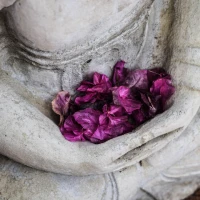Scuba diving is an exhilarating and challenging sport that allows individuals to explore the fascinating underwater world. However, it requires focus, mental clarity, and physical stamina to ensure a safe and enjoyable experience. One practice that has gained popularity among divers is meditation. By harnessing the power of the mind, divers can enhance their performance, reduce stress, and improve their overall diving experience. In this article, we will explore the benefits of meditation for diving and how it can positively impact divers’ mental and physical well-being.
The Importance of Mental Preparation in Diving
Diving requires not only physical strength and skill but also mental preparedness. A calm and focused mind is crucial for divers to make quick decisions, adapt to changing conditions, and stay safe underwater. The underwater environment can be unpredictable, and being mentally prepared helps divers handle unexpected situations and remain composed.
The Role of Meditation in Diving
MedHow do I start diving?tation is a practice that involves training the mind to focus and redirect thoughts, ultimately leading to a state of mental clarity and calmness. It has been used for centuries to promote relaxation, reduce stress, and enhance concentration. When applied to diving, meditation can significantly improve a diver’s mental and physical performance.
Improved Concentration and Focus
One of the key benefits of meditation for diving is its ability to enhance concentration and focus. Through regular meditation practice, divers can train their minds to stay present and fully engaged in the dive. This heightened focus allows divers to better absorb information, prioritize tasks, and react quickly to changes in their surroundings.
Stress Reduction
Diving can be a stressful activity, especially for beginners or in challenging underwater conditions. Meditation has been proven to be an effective tool for stress management. By practicing meditation techniques before and during dives, divers can reduce anxiety, stay calm under pressure, and navigate challenging situations with a clear and composed mind.
Increased Self-Awareness and Mindfulness
Meditation fosters self-awareness and mindfulness, which are essential qualities for divers. By cultivating mindfulness, divers can fully immerse themselves in the present moment and become more attuned to their thoughts, emotions, and physical sensations. This heightened awareness allows divers to better understand their bodies, manage their breathing, and make conscious decisions during the dive.
Enhanced Relaxation and Dive Experience
Diving is meant to be a pleasurable and relaxing experience, allowing individuals to connect with nature and disconnect from the stresses of everyday life. Meditation promotes deep relaxation and mental tranquility, which can greatly enhance the overall dive experience. By incorporating meditation techniques, divers can maximize their enjoyment and appreciation of the underwater world.
Techniques for Meditating Before and During Dives
Integrating meditation into your diving routine can be as simple as dedicating a few minutes each day to practice. Here are some techniques to help you get started:
1. Breathing Meditation
- Find a quiet and comfortable place to sit or lie down.
- Close your eyes and focus your attention on your breath.
- Take slow, deep breaths, inhaling through your nose and exhaling through your mouth.
- As you breathe, observe the sensation of the breath entering and leaving your body.
- If your mind wanders, gently bring your focus back to your breath.
- Practice this breathing meditation for 5-10 minutes each day to cultivate a sense of calm and relaxation.
2. Visualization Meditation
- Imagine yourself in your ideal diving location, surrounded by clear blue water and colorful marine life.
- Visualize the details of the underwater environment, such as coral reefs, schools of fish, and the feeling of weightlessness.
- Engage your senses by imagining the sound of the bubbles and the sensation of the water on your skin.
- Hold this visualization in your mind and allow yourself to fully immerse in the experience.
- This visualization practice can help create a positive and calm mindset before diving.
3. Mantra Meditation
- Choose a word, phrase, or affirmation that resonates with you and relates to diving, such as “peace,” “calm,” or “I am one with the ocean.”
- Sit in a comfortable position, close your eyes, and repeat the chosen word or phrase silently or out loud.
- Allow the sound and meaning of the words to fill your mind and create a sense of tranquility.
- Focus on the rhythm and cadence of the mantra, letting go of any distracting thoughts.
- Practice this mantra meditation before and during dives to promote mental clarity and focus.
Incorporating these meditation techniques into your diving routine can help you reap the benefits of a calm and focused mind underwater. Remember to start with short practice sessions and gradually increase the duration as you become more comfortable with the practice.
Meditation and Physical Benefits for Divers
In addition to the mental advantages, meditation also offers various physical benefits that can positively impact divers’ performance and well-being. Let’s explore some of these physical benefits:
1. Improved Breathing Technique
Breathing is a fundamental aspect of diving, and proper breathing technique is crucial for efficiency and conservation of air. Regular meditation practice can help divers develop better breath control and awareness. By focusing on their breath during meditation, divers can learn to regulate their breathing patterns, slow down their heart rate, and conserve air while diving. This enhanced breathing technique can lead to longer dive times and a more enjoyable underwater experience.
2. Reduced Risk of Nitrogen Narcosis
Nitrogen narcosis, also known as “the bends,” is a condition that can occur at deep diving depths when divers are exposed to high levels of dissolved nitrogen. It can cause disorientation, impaired judgment, and even unconsciousness. Meditation can help reduce the risk of nitrogen narcosis by promoting a calm and focused state of mind. By maintaining mental clarity and composure during deep dives, divers can minimize the potential effects of nitrogen narcosis.
3. Better Buoyancy Control
Buoyancy control is an essential skill for divers to maintain proper depth and control their movement underwater. Meditation can improve divers’ ability to control their buoyancy by promoting a calm and steady mindset. When divers are relaxed and focused, they can make subtle adjustments to their buoyancy without causing abrupt movements or disturbances in the underwater environment. This greater control enhances buoyancy control skills and reduces the risk of damaging marine life or underwater structures.
4. Enhanced Physical Endurance
Diving often requires physical endurance, especially during long dives or in challenging conditions. Regular meditation practice has been shown to enhance physical endurance by promoting relaxation and reducing fatigue. By incorporating meditation techniques before and after dives, divers can optimize their physical performance, recover more quickly, and reduce the risk of physical strain or injury.
5. Stress and Pain Reduction
Diving can sometimes cause physical discomfort, such as the pressure effects on the ears or the strain on muscles and joints. Meditation has been proven to reduce stress and alleviate physical pain. By practicing meditation techniques, divers can minimize the impact of physical discomfort, stay more relaxed, and enjoy their dives with greater ease.
Case Studies: Divers Who Incorporate Meditation
Many divers around the world have experienced the benefits of meditation firsthand. Here are a few case studies of divers who have incorporated meditation into their diving routines:
Case Study 1: Sarah, the Calm and Focused Diver
Sarah, an experienced diver, noticed that her anxiety levels would sometimes rise before challenging dives. To overcome her fears and improve her overall diving experience, she decided to start practicing meditation regularly. Sarah incorporated breathing meditation into her pre-dive routine, taking a few minutes to focus on her breath and calm her mind. As a result, she found herself feeling more relaxed and focused during dives. Sarah’s newfound ability to remain calm underwater allowed her to make better decisions, navigate complex dive sites, and enjoy diving to the fullest.
Case Study 2: Mark, the Nitrogen Narcosis Fighter
Mark, an advanced technical diver, often explored deep dive sites where nitrogen narcosis could pose a significant risk. Determined to overcome the potential effects of nitrogen narcosis, Mark started incorporating visualization meditation into his dive preparations. By visualizing himself with a clear mind and focused attention during deep dives, Mark found that he was able to maintain mental clarity even at extreme depths. This newfound mental resilience allowed him to minimize the impact of nitrogen narcosis and safely explore deeper underwater realms.
Case Study 3: Anna, the Buoyancy Master
Anna, a dedicated underwater photographer, struggled with maintaining perfect buoyancy control while capturing images of marine life. She noticed that her inconsistent buoyancy adjustments often startled the subjects and disrupted the natural harmony of the underwater environment. Anna began incorporating mantra meditation into her diving routine, focusing on the mantra “I am in harmony with the ocean.” By reciting this mantra and holding it in her mind during dives, Anna found that she became more in tune with the underwater world and made smoother, more gentle movements. Her improved buoyancy control allowed her to capture breathtaking images while respecting the marine life she encountered.
These case studies demonstrate the transformative power of meditation in enhancing divers’ performance and overall diving experience. By incorporating meditation techniques tailored to their needs, divers can elevate their mental and physical states, enabling them to fully embrace the wonders of the underwater world.
Conclusion
Mind over matter is a concept that holds true in many aspects of life, and diving is no exception. By harnessing the power of meditation, divers can enhance their mental and physical performance, reduce stress, and enjoy a more immersive diving experience. The benefits of meditation for diving are numerous, including improved concentration, stress reduction, increased self-awareness, enhanced relaxation, and better physical endurance. Techniques such as breathing meditation, visualization meditation, and mantra meditation can be easily incorporated into divers’ routines to optimize their diving experience.
So, the next time you gear up for a dive, remember to dive deep into meditation as well. Unlock the potential of your mind, cultivate mindfulness, and explore the endless possibilities that await you beneath the surface. Happy diving!
- Bullet point
- Unordered list
- Bold text
- Italicized text
- Underlined text










